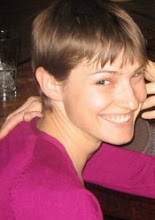In the interest of full disclosure, I should mention that I am not a connoisseur of memoirs. As a person who holds privacy dear, I contemplate with a kind of fascinated horror those who think their subjectivity is sufficiently important to put on display for all mankind and posterity. Of the billions of people on the planet, I wonder what makes one believe in his or her own absolute uniqueness. That personal quirk aside, I have to say that I really enjoyed reading Jonathan Franzen's The Discomfort Zone: A Personal History. Partially, I believe, because Franzen's relationship to his own experience is so detached and intellectualized. He, too, seems to wonder why he should put himself at center stage, and therefore constantly deflects attention from his own experience to highlight some other event, person, or object. This book of personal essays creates a space for disquisitions on the true character of Charles Schulz, on bird watching, and on the intersection of sensitivity training and Christianity in America in the 1970s.
Franzen's is the life of the urban elite. He has reached a level of recognizable success. He has a nice apartment in the Upper East Side; enough money to donate to favorite causes to assuage his liberal guilt; a conflicted and constant engagement with his mid-west, middle class roots; an ironic distance from the luxuries that money can buy. Now he processes the actions and accidents that brought him to this point.
Through his reflections, we discover him to be:
-a man coming to terms with his mother's death and the guilt he feels for only really understanding her separately from her smothering love in the last year of her life.
-a born-again bird watcher, having newly discovered the hobby to be one of the rare activities that can temporarily stymy his goal-oriented personality and shift his mental rhythms from the analytical to the appreciative.
-someone who was formed by and deeply appreciative of the undergraduate education he received in German literature.
-A late bloomer with occasional regressions to adolescent reactions to women.
-A sometimes resentful, sometimes grateful, product of the women's liberation movement.
But really, Franzen is beside the point, and that is what renders this group of essays so powerful. He is simply and admittedly a representative of the many intelligent and fortunate people of his generation who went out into the whacky world of late twentieth-century America and found a place in it.




4 comments:
I picked this up last week, my last book purchase of the year, for a mere $2. Your review makes me think I ought to get around to it sooner rather than later.
You seem to be interested in a lot of what I am interested in Mille Feuille. I have this next to my bed now - partially read. I picked in up while travelling and was enjoying it but put it aside for other things when I returned and haven't got back to it. Must do so - writers writing about themselves are often interesting even if you don't always get what you want. (If you are interested you could look at my post on Haruki Murakami's memoir-of-sorts)
Whispering Gums (A great nom de plume, by the way),
Thanks for leading me over to your Murakami piece. I've never read any of his novels; the descriptions never seem compelling to someone as suspicious of experimental fiction as myself (I say while dutifully reading The Man Without Qualities). It seems to me of a piece with his reputation that he would hold up the hope of learning about one thing (say, his relationship to his own writing) and give something else (a disquisition on his love for running). His early-career self-exile to avoid the light of fame would also suggest that he is not a man comfortable with revealing his inner workings. For all the frustration that the text probably induced, I have some respect for his tendency to undersell his own importance as a literary figure.
Is there one of his novels that you would recommend as a starting point?
Sorry for the delayed reply ... there doesn't seem to be a checkbox here so that I can subscribe to comments on your blog and therefore receive notification when comments are added to posts I've commented on?
Anyhow, probably the best Murakami to start with is Norwegian Wood - it's probably more straightforward than some of his others (and I've only read a few). rather than then jumping into the big ones like Wind up bird chronicle (which I haven't read) and Hard boiled wonderland... (which I have) you could then try After dark. It has mixed reception and there is some "weirdness" but I found his evocation of the people and place mesmerising.
Post a Comment